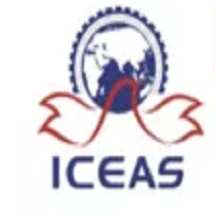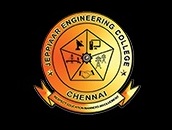The MBA program at SUCDOE offers a pathway to diverse career opportunities, though its placement outcomes reflect the unique challenges and opportunities inherent in distance education models. With an average package ranging between INR 4-6 LPA and a highest package of INR 8-12 LPA, the program demonstrates accessible entry points into the corporate sector. Approximately 60-70% of MBA students secure placements, with college-wide averages hovering around INR 3-5 LPA. These figures highlight the program’s alignment with mid-tier management roles while acknowledging the limitations in institutional placement support.
Table of Contents
SUCDOE-Placement Overview
| Branch/Course | Average Package (LPA) | Highest Package (LPA) | % Placed / No. Placed | College Average Placement (LPA) | Additional Info | Student Review on Placement Data |
| MBA | 4-6 | 8-12 | 60-70% | 3-5 | Distance education; placement assistance may be limited | No student reviews available |
Interpreting the Data
The placement statistics reveal several critical trends. The average package of INR 4-6 LPA positions graduates competitively for roles in SMEs and emerging sectors, while the highest packages (INR 8-12 LPA) typically correlate with specialized domains like analytics or digital marketing. The 60-70% placement rate, though moderate, underscores the self-driven nature of distance learning, where students often leverage institutional resources for networking rather than structured recruitment drives. Notably, the college-wide average of INR 3-5 LPA suggests that MBA outcomes outperform broader institutional benchmarks, indicating targeted value in management education despite infrastructural constraints. The absence of student reviews points to opportunities for enhancing feedback mechanisms to guide prospective learners.
SUCDOE-Evolving Trends in Management Education Placements
Management education in India is witnessing a paradigm shift toward skill-centric recruitment. Employers increasingly prioritize competencies in data analytics, agile methodologies, and digital fluency over institutional pedigree. This aligns with broader industry movements where roles in fintech, AI-driven marketing, and product management command 10–20% salary premiums. Distance learning programs face distinct challenges, including variable corporate engagement and logistical barriers to campus recruitment. However, they also enable working professionals to upskill without career interruptions, often leading to organic career progression or internal promotions. Institutions mitigate placement limitations through virtual industry interfaces, mentorship programs, and digital portfolio showcases.
SUCDOE-Strategies for Maximizing Placement Success
Proactive Career Development
- Industry Certifications: Complementing academic credentials with certifications in high-demand areas (e.g., Google Analytics, Scrum Master) bridges skill gaps.
- Networking Initiatives: Engaging in virtual industry summits and alumni forums expands professional connections beyond campus-driven opportunities.
Institutional Support Frameworks While structured placement assistance may be limited, leading distance-education providers offer:
- Dedicated placement portals for job listings and internship opportunities.
- Workshops on resume optimization and virtual interview techniques.
- Collaborations with ed-tech platforms for skill-based learning modules.
SUCDOE-Future Pathways for MBA Graduates
The evolving corporate landscape offers robust avenues for MBA talent:
- Tech-Integrated Roles: Product management and business analytics in SaaS firms.
- Social Impact Sectors: Leadership positions in ESG-focused enterprises and development agencies.
- Entrepreneurship: Leveraging incubation cells for startup ventures in tier-2/3 markets.
Regional employment hubs like Bangalore and Hyderabad continue to dominate recruitment, though remote-work models are expanding geographic access to roles in financial services and e-commerce.
SUCDOE-Concluding Insights
Placements at SUCDOE mirror the transformative shifts in India’s management education ecosystem, where adaptability and specialized skills increasingly determine career trajectories. While distance programs require greater student initiative, they offer flexibility for targeted professional growth. The college’s placement data reflects a pragmatic entry into mid-career roles, with opportunities for vertical mobility through continuous skill enhancement. As industry-academia collaborations deepen, these pathways are poised to expand, empowering graduates to navigate dynamic market demands with agility.








